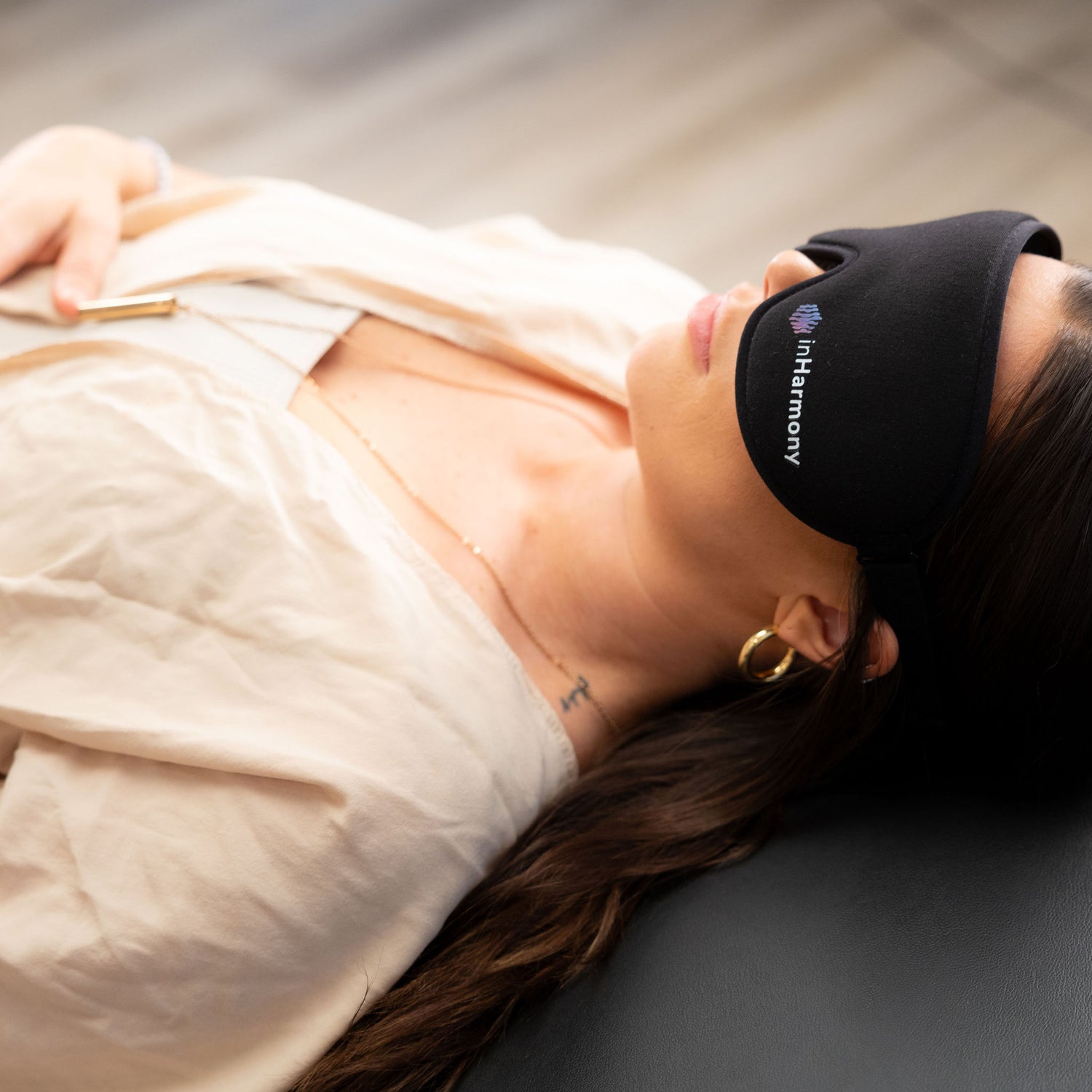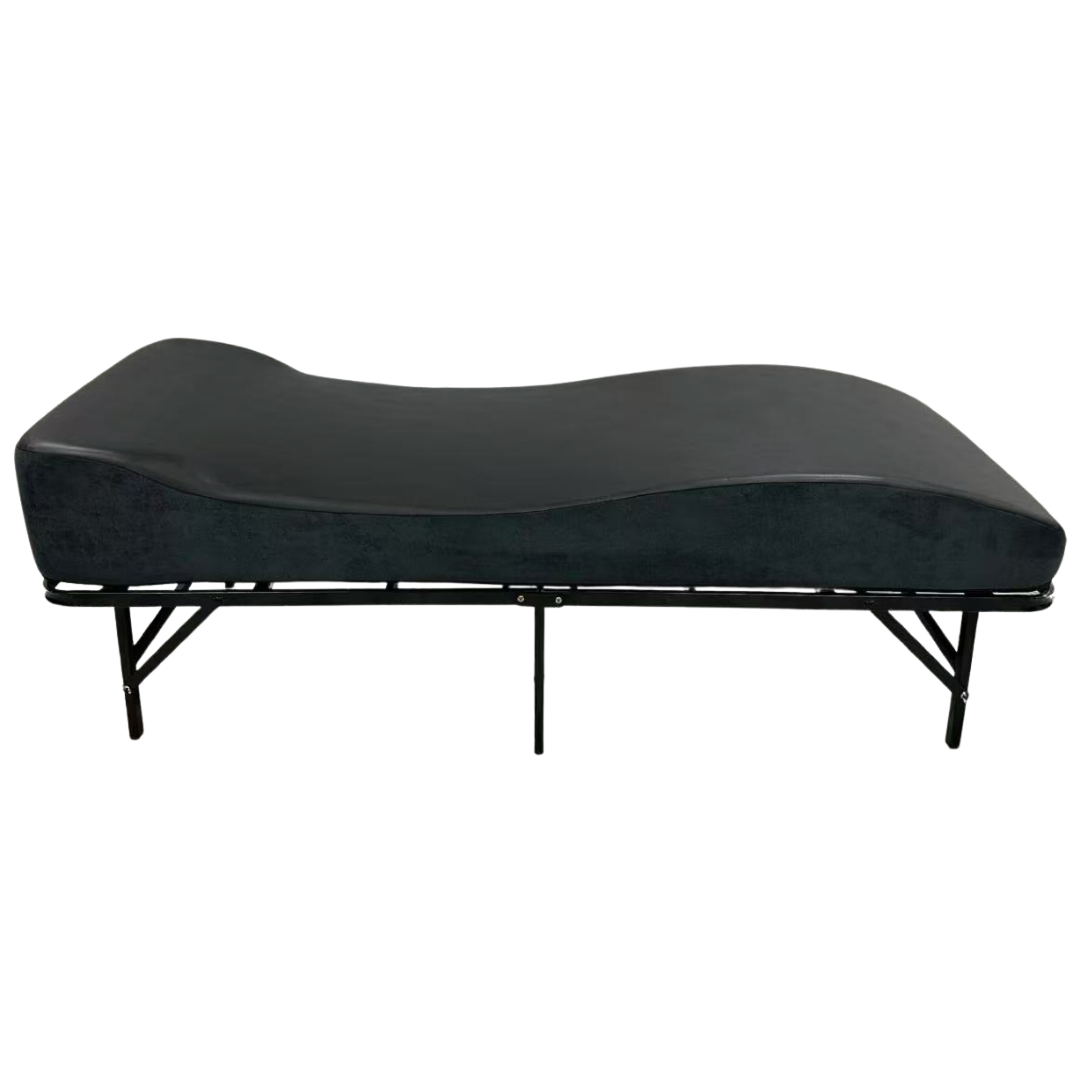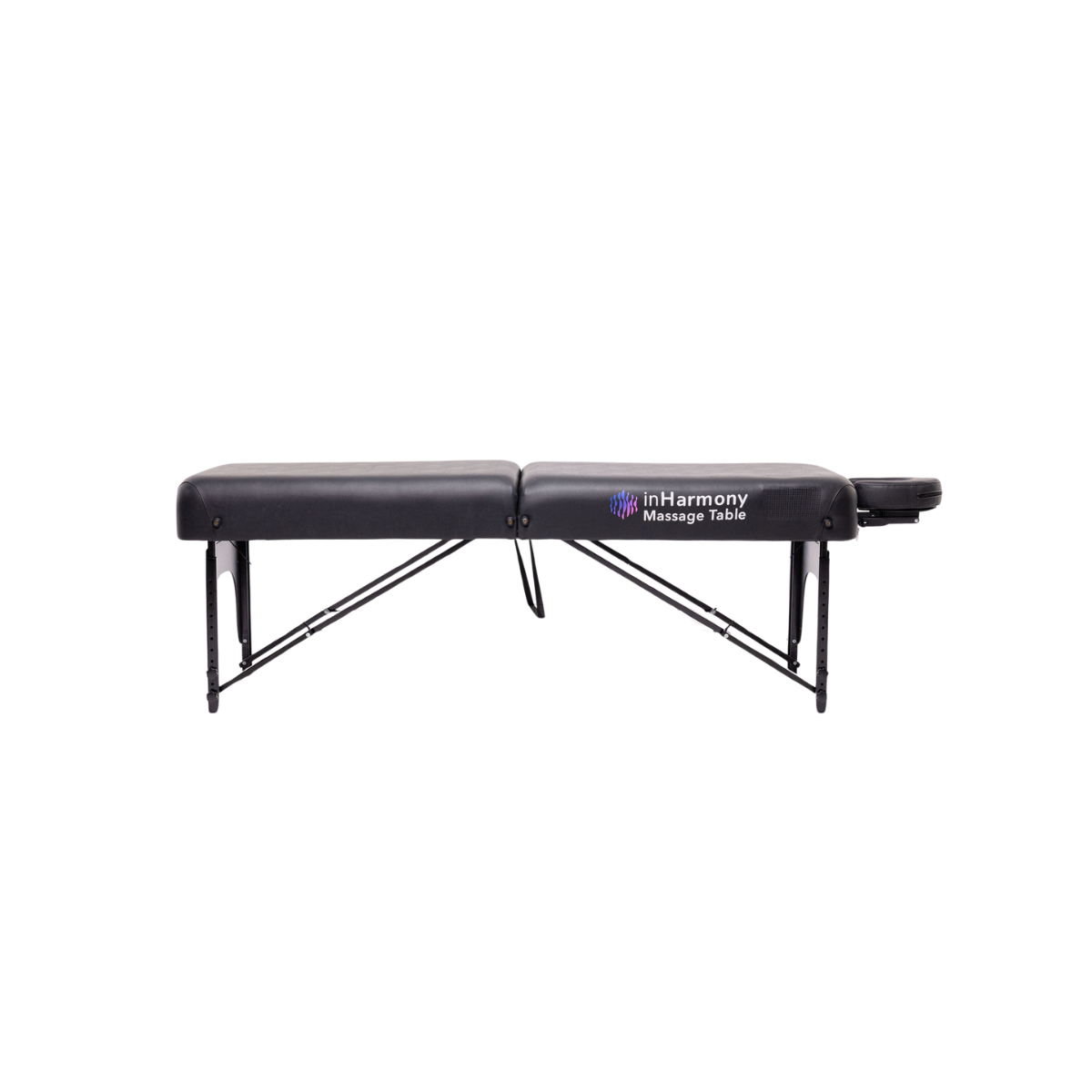Preparing your Body for Rest

Relaxation prepares your body and mind for rest. It helps slow heart rate, regulate breathing, and shift the nervous system out of stress mode so you can ease into deeper stages of sleep.
Simple, consistent practices can make a major difference:
- Creating a routine: Going to bed and waking up at the same time every day supports your body’s natural rhythm.
- Quieting the mind: Meditation or journaling helps release mental tension and reduce racing thoughts.
- Calming the body: Gentle stretching or breathwork encourages your body to let go of the day.
- Reducing stimulation: Dim lighting and less screen time signal to your body that it’s time to rest.
These moments of intentional calm help you fall asleep faster and wake feeling more restored.

How inHarmony Assists with Relaxation and Sleep
At inHarmony, we believe better sleep begins with relaxation. Our relaxation furniture assists the body in finding calm through sound and vibration. The soothing frequencies help quiet the mind and guide the body into a more restful state, making it easier to drift into sleep naturally.
Whether used in the evening to unwind from the day or during a midday break to reset, inHarmony provides a comfortable space to pause and recharge. Regular use can help promote balance in the nervous system, reduce stress, and support deeper rest over time.
Paired with the inHarmony Music Meditations App, you can experience original sound journeys designed to support relaxation, mindfulness, and sleep. Together, they create a calming ritual that brings consistency and peace to your nighttime routine.
Building a Routine for Restful Nights
-
1. Establish a Consistent Bedtime Routine
Your body thrives on rhythm. Set a bedtime and wake-up time, even on weekends. Use the hour before bed for calming activities like reading, meditation, or light stretching to help your body recognize it’s time to rest.
-
2. Create a Sleep-Conducive Environment
Design your bedroom for comfort and calm. Keep it dark, cool, and quiet. Consider blackout curtains or white noise if needed. A tidy, uncluttered space signals peace to your mind.
-
3. Reduce Blue Light and Digital Stimulation
Power down screens at least 30–60 minutes before bed. The blue light from phones and computers disrupts melatonin, the hormone that helps you fall asleep. Replace scrolling with relaxation techniques or soft music.
-
4. Manage Stress During the Day
Daily stress directly impacts sleep. Take short breaks for breathing, walking, or mindfulness to prevent tension from carrying into your evening.
-
5. Incorporate Movement and Mindfulness
Regular exercise supports healthy sleep cycles, while mindfulness helps quiet mental chatter. Try meditating with the inHarmony Music Meditations App or spending time on your inHarmony relaxation furniture before bed.
-
6. Practice Gratitude or Reflection
Before sleep, write down three things you’re grateful for. Positive reflection helps calm your thoughts and shift focus away from the day’s worries.

How Relaxation Benefits the Whole Day
Better sleep doesn’t just improve your nights. It transforms your days. With quality rest, you’ll notice:
- Improved focus and creativity
- Better mood and emotional balance
- More consistent energy
- Stronger resilience under stress
- Enhanced physical recovery and immune health
By prioritizing relaxation and sleep, you give yourself the foundation to live and perform at your best.
Explore the Sleep Soundly Guidebook
Are You Ready to Download the Free Guidebook?
Shop Now





















